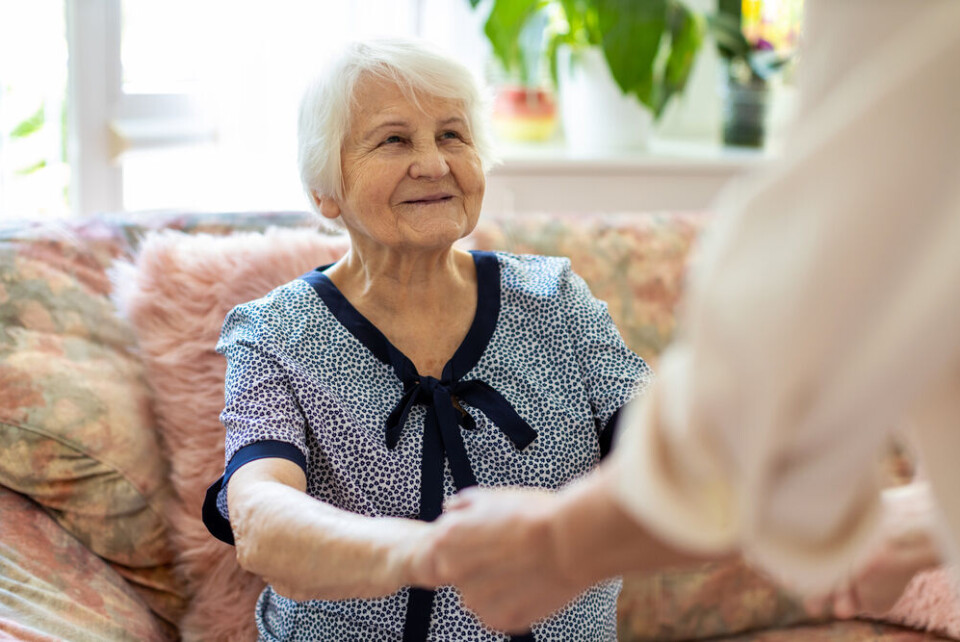-
Explained: How an amicale laïque can help you get involved in France
The organisation offers a range of community events and festivals
-
Self-employed workers in France must switch to electronic billing - what will it cost?
Union leaders warn sector is ‘in jeopardy’ over new rules
-
Remote working is ‘here to stay’ in France
Télétravail is deeply rooted in the workplace having become widespread during the Covid-19 pandemic
Explainer: What help is there for people who are carers in France?
We explain the leave and compensation rights for people who care in a non-professional capacity for someone close to them

There are 11 million ‘non-professional’ carers in France, and the country has a number of laws in place to help protect their right to holidays, rest, and health. We look at the help that currently exists.
France defines a ‘carer’ as: “A person who helps, regularly and frequently, in a non-professional capacity, to help all or some of the daily acts or activities of a person who has a loss of autonomy, due to age, illness, or disability”.
Carer leave
Caregiver leave allows people to suspend or reduce their professional activity (in their normal or usual job) in order to look after a relative with a disability or loss of independence.
This leave has been compensated since October 2020.
However, it is now available to more people, after a new decree, published in the Journal Officiel on July 24, 2022, removed the criterion that only carers of people with a condition of “particular seriousness” were eligible.
This now applies to all carers with benefits due from July 1, 2022.
Who is eligible for carer leave?
This leave is available for all employees in the private sector, public sector, the self-employed, and jobseekers on benefits, as long as their caring work interferes with their ability to perform their usual professional or job seeking activities.
Retired people cannot apply for this leave unless they work in addition to their pension, and reduce their activity in order to look after a person in need.
Caregiver leave is available under the following conditions:
- Have a close and stable relationship with the person being cared for (spouse, partner, civil union partner, relative, descendant, person with whom he or she lives, or whom he or she regularly and frequently helps)
- The beneficiary and the person being assisted must live in France
- The beneficiary must provide non-professional assistance to a person in need to help them accomplish all or part of their daily activities
- The person being assisted must have a disability rate equal to or greater than 80% or receive a benefit related to their loss of autonomy
Daily financial support for carer income loss
The allocation journalière du proche aidant (daily financial aid for carers, AJPA) is intended to compensate for part of the loss of salary, up to a maximum of 66 days, during the employee's career.
The amount is reevaluated each year on January 1, according to the net minimum wage amount for January 1 of that year. It is paid by the Caisses d'allocations familiales (Caf) or the Mutualité sociale agricole (MSA).
Since January 1, 2022, the allowance has been €58.59 per day and €29.30 per half-day.
The carer is entitled to a maximum of 22 AJPAs per month. The allowance can be paid by the half-day, except for jobseekers.
At the end of the caregiving leave, the employee must return to their job, or a similar job, with at least equivalent pay.
National Day for Carers
France also has a National Day for Carers (La Journée nationale des aidants (JNA)), which has taken place every year on October 6, since 2010.
The national day aims to bring together carers from across the country, and those who work for the rights of carers.
Healthcare professionals and professional at-home carers also use the opportunity to offer advice to non-professionals about their rights and the help available to them.
See more about the help available to carers and more government resources on the government website, service-public.fr (in French).
Related articles
Dementia carers in France need support
























